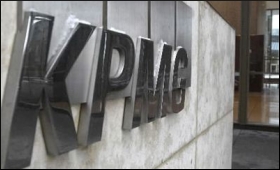|

|
'4.2 to 5.4 mn jobs to be lost by 2022 worldwide due to piracy'
|
|

|
|
| Top Stories |
 |
|
|
|
SME Times News Bureau | 13 Oct, 2017
The total employment losses globally due to Illicit trade (counterfeit and piracy) stood at 2 to 2.6 million jobs in 2013 and is expected to rise to 4.2 to 5.4 million jobs in 2022, suggesting an approximate increase of 110 percent, said a study conducted by FICCI-KPMG.
A FICCI-KPMG report namely Illicit Trade: Fueling Terror Financing and Organised Crime is a product of a FICCI initiative, namely the Committee Against Smuggling and Counterfeiting Activities Destroying the Economy [CASCADE].
The report was launched on Thursday at the FICCI conference, MASCRADE 2017 (Movement Against Smuggling and Counterfeit Trade).
The report helps improve our understanding of the nexus between terror financing, organised crime and illicit trade.
Terrorism is a global problem that affects almost every country of the world, consequences of which are felt by the industry, government and the civilians alike. More than 55 percent of all attacks in 2016 took place in Iraq, Afghanistan, Pakistan, India, and Nigeria. In order to fund and execute these attacks, terrorist organisations require financing for which they employ different financing mechanisms such as state-sponsored financing, charities and donations, kidnapping, extortion etc.
It has been observed that illicit trade which includes smuggling, counterfeit and piracy is one of the most preferred mechanism used by these organisations to finance their operations. Many prominent terrorist organisations such as Hezbollah, Lashkar-eTaiba, Al Qaida, Irish Republican Army, etc. rely on illicit trade for financing upto 20 percent of the terror operations, recent example of which is Charlie Hebdo attacks.
Illicit trade is a problem that has high economic impact and is growing exponentially with time. Dr Sanjaya Baru, Secretary general, FICCI said, "Illegal trade in smuggled, counterfeited and pirated goods dampens the economy in multidimensional ways. It destabilises the legal industry, restrains innovation and investments, reduces government revenues and hampers the health and safety of consumers. Moreover, globally it fuels transnational crime, corruption, and terrorism. As it converges with other criminal activities it undermines the rule of law and the legitimate market economy, creating greater insecurity and instability around the world."
In the report 'Trade in Counterfeit and Pirated Goods: Mapping the Economic Impact' published by Organisation for Economic Co-operation and Development (OECD) and European Union Intellectual Property Office (EUIPO) in April 2016, it is estimated that the total economic and social costs globally due to counterfeiting and piracy worldwide stood at USD737 to USD898 billion in 2013 and is expected to rise to USD1.54 to USD1.87 trillion by 2022, suggesting an approximate increase of 108 percent.
Apart from this, the total employment losses globally due to counterfeit and piracy stood at 2 to 2.6 million jobs in 2013 and is expected to rise to 4.2 to 5.4 million jobs in 2022, suggesting an approximate increase of 110 percent.
Smuggling in India takes place in various forms- mis-declaration, undervaluation, misuse of end use and other means. The seizure value for mis-declaration of goods stood at INR1,187 crore in 2016, while that of undervaluation of goods stood at INR 254 crore. The seizure value from misuse of end use was at INR 2,780 crore, seeing a rise from INR 953 crore in 2015, suggesting an increase of 190 percent in 2016 from the previous year.
The most commonly counterfeited and smuggled goods are tobacco, cigarettes, electronic items, gold, machinery and parts, alcoholic beverages, auto components, Fast Moving Consumer Goods (FMCG) and mobile phones. As per KPMG in India’s analysis on UN COMTRADE data for years 2012-2016, average smuggling in electronics for these years is estimated to be INR 3,429.69 crore.
Similarly, average smuggling in gold for these years is estimated to be INR 3,119.56 crore and for machinery and parts is estimated to be INR5,913 crore. The percentage penetration of illicit trade in the cigarettes market increased from 15 percent to 21 percent over the years 2010-2015. Whereas, the number of smokers in India over years increased, the sales volume of cigarettes went down, thereby suggesting an increase in the penetration of illicit trade in the industry.
There are certain factors that drive the growth of illicit trade in the industry. Higher taxation rates, availability of cheaper alternative, lack of awareness and lack of enforcement mechanisms are key factors that encourage the consumers to opt for counterfeited, smuggled or pirated good without realising the after effects of promoting the illicit trade, the report said.
|
|
|
| |
|
|
|
|
|
|
|
|
|
|
|
|
|
|
| |
| Customs Exchange Rates |
| Currency |
Import |
Export |
US Dollar
|
66.20
|
64.50 |
UK Pound
|
87.50
|
84.65 |
Euro
|
78.25
|
75.65 |
| Japanese
Yen |
58.85 |
56.85 |
| As on 13 Aug, 2022 |
|
|
| Daily Poll |
 |
 |
| PM Modi's recent US visit to redefine India-US bilateral relations |
|
|
|
|
|
| Commented Stories |
 |
|
|
|
|
|
| |
|